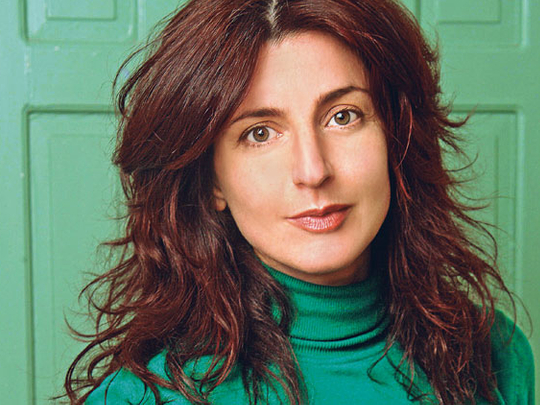
Around half of Israel's population today is of Arab heritage, yet it is in a state of war with almost all its Arab neighbours. While Israel's Arab Jews have chosen to firmly side with their adopted country, the integration process has been far from smooth for them.
Iraqi-Israeli journalist Rachel Shabi, whose book We Look Like the Enemy details the discrimination faced by Arab Jews and the continued stigmatisation of Arab-Jewish culture in Israel, speaks to Weekend Review from Tel Aviv about a rich culture that is in decline under the dominance of a more acceptable European-Jewish culture.
Was writing the book an eye-opening experience for you?
What became apparent to me when I came back to Israel was that the culture of Jews from Arab countries was not valued. They had a very low status. It really opened my eyes that it's still so prevalent and is such a painful issue for so many people.
There is awareness among the Mizrahis (Jews of Middle Eastern origin) that there is a continuing and blatant socioeconomic and cultural discrimination that persists.
How much pressure do Mizrahis face to assimilate into the Ashkenazi (European Jewish) character of Israel?
A lot of pressure. I've spoken to so many people who grew up in Israel and recall the social messaging that everything about you — your parents, your culture, your history and your heritage — is common, uncivilised, barbaric and associated with the enemy. And if you want to get ahead in Israeli society, then you really need to drop those customs. It's a story that keeps repeating itself. So many [Mizrahis] would recall spending their childhood building up a fake identity to belong in Israel. All countries have social pressure but in this instance it's trying to persuade the majority population to adopt the preferences of the minority.
Do you see that trend changing? Are new generations of Mizrahis more or less willing to reconcile with their roots?
Many Mizrahis were defiant and resilient and developed their culture. [But] there's also the generation of migrants who grew up with their parents trying to bury their past.
They would say to their parents: "Don't speak Arabic when we're in public" or "Don't play Arabic music." Now they remember that with shame and try to reconnect with their roots.
Are such Mizrahis pushed to the fringes of society?
Yeah, people who espouse that kind of view are marginalised as radical and fringe and even pro-Palestinian.
Apart from the Western assumption of superiority over the Arab world — which you know is not a particularly Israeli phenomenon — there is of course the complication that not only is this [Arab] culture inferior but it's the culture of the enemy that surrounds us.
Do you think the Mizrahi community being the voter base of Israel's Right wing has to do with pressure on the community to prove its loyalty to a Zionist Israel?
I think that's part of the narrative. If you look like the enemy and have the culture of the enemy then you're going to want to prove your membership to the Jewish club. But the other part of the narrative is political.
The Israeli Right wing very cannily saw that Mizrahis perceived the Left wing to be a source of institutional discrimination so it manipulated that and campaigned on that platform.
Has Israel managed to craft an identity for itself yet?
It is still a work in progress. But the interesting thing is that the people who pioneered the nation were predominantly European Jews who had a very clear idea about what its identity should be and that was very clearly set to European tastes.
Palestinian Jews, who were here and watched the influx of Jews from Europe, thought the exact opposite. They thought Jewish culture was Arab culture and that the Europeans were the ones that had deviated from Jewish culture.
Do you think that Mizrahis could, in the future, demand a redefinition of the character of Israel that is more in line with its geographic context?
I am hopeful. But I don't think it necessarily has to come from the Mizrahi community. I've met plenty of European Jews who recognise that, learn Arabic and openly say: "We live in the Middle East and need to find a way to integrate in the region and not act [like] and aspire towards Europe." You don't have to be Mizrahi to have a Mizrahi outlook.
Are you concerned that the oriental identity of the Mizrahis will wither as time passes?
Yes. On the one hand the Mizrahi accent, which of course is the original Hebrew accent that is closer to Arabic, has been effectively wiped out and people who still speak it are pretty much ridiculed.
But then you see these examples of resilience, of people making efforts to relearn, remember and restore that culture and you think it will survive against the odds.
Whenever people have tried to raise that flag they have been told: "We mustn't do that because that undermines our unity and our national security."
Until Israel makes peace with itself, it won't be able to make peace with its neighbours.
Are Arab Jews living outside Israel more comfortable identifying with their roots than those in Israel?
The big taboo in Israel is the term "Arab Jew". You're not allowed to say that.
Middle Eastern Jews in the diaspora are perhaps more laid-back about using that label. In Israel there is a complete dissonance that is held into a false dichotomy, that you can't be an Arab and a Jew, which of course is complete nonsense, [even] historically.
Do Mizrahis have any sense of regret for leaving their countries for Israel?
Absolutely. Despite the national narrative that Israel rescued Jews from oppressive, tyrannical Arab regimes, those who came from those countries have great memories. Many of them happily talk about the good quality of life they had and what a shock it was to come and realise that they had perhaps been misled about what they were walking in to.








